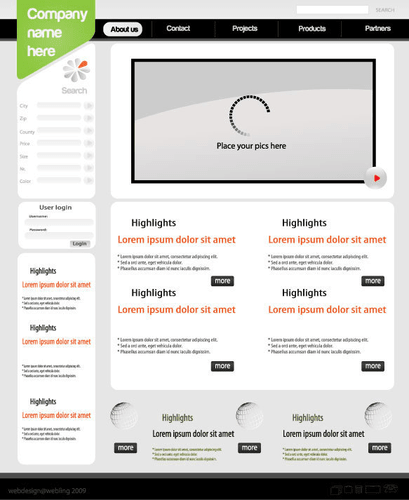Accounting Consultant Duties & Responsibilities

Being an accountant can mean far more than preparing tax returns, compiling financial statements, handling technical compliance work or providing back-office accounting services. It’s becoming increasing popular for many CPAs to offer their services in an accounting consultant capacity, which is a bridge to becoming the holistic trusted advisor consumers are looking for in today’s economic climate. An accounting consultant offers expert advice on financial management, ensuring a business’s financial operations are efficient, accurate, and compliant with legal norms. As a member of one of the world’s largest Workday-certified teams, you’ll be part of a team of advisory professionals who deliver more than just technology.
Put me in, Coach: where accounting consultants thrive
- News Weekly” magazine, “The Career” magazine and “Human Resources Journal.” Green holds a master’s degree in finance from New York University.
- I worked with many different not-for-profit organizations and found that I have a passion for mission-driven organizations.
- Many CPAs who have made the leap to consulting, whether on their own or working with a staffing company, have found it to be a rewarding career move.
- They’re also known for soft skills such as Analytical skills, Communication skills, and Organizational skills.
- We understand the many finance and accounting challenges faced by growing and established businesses.
- The advantage to working for a firm, though, is that you won’t need to find clients or market yourself.
Budget management and financial forecasting are essential for an accounting consultant’s responsibilities. They design these systems to streamline financial operations, improve reporting accuracy, and ensure strict compliance with financial laws and regulations. I’ve met plenty of great accountants who don’t have a CPA, but in my experience, having the credential really helps to advertise your expertise and makes a difference in your compensation and career options. There are some workplaces that don’t want to consider someone for an accounting role who is not a CPA. The CPA is an important credential to me, and I still get continuing education credits every year to keep up with our state requirements.
Essential Skills and Experience
Different consultants offer different services and have different areas of expertise. Businesses should understand what a potential consultant specializes in and what services they can provide. Professional consulting services can be expensive, and businesses must weigh these costs against the potential benefits before hiring a consultant. Risk mitigation is another significant benefit provided by accounting consultants. They are well-versed in the latest financial regulations, accounting practices, and industry trends, ensuring businesses can operate efficiently and comply with all necessary rules and regulations.
How do accounting consultants rate their job?
- Accounting consultants handle sensitive financial information, so they must maintain confidentiality and uphold the highest ethical standards.
- To become an accounting consultant, you also need to consider who you want to work with.
- I decided that I wanted to start my career in public accounting in order to learn a lot in a short period of time and be exposed to different types of clients and different areas of accounting.
- For most, this begins with earning a bachelor’s degree in accounting or a related field, such as finance or business administration.
- You would also receive your entire fee from your clients and don’t need to give a cut to a staffing firm.
- Accounting consultants are crucial in managing finances, ensuring compliance, and making strategic decisions based on accurate information.
They often carry professional certifications such as Certified Public Accountant (CPA) or Certified Management Accountant (CMA), which are a testament to their competence in the field. Their expertise helps organizations avoid financial pitfalls and carve a path toward fiscal stability and growth. This activity includes adherence to tax laws, financial reporting standards, and other relevant legislation. We have an unwavering commitment to diversity with the aim that every one of our people has a full sense of belonging within our organization. As a business imperative, every person at Accenture has the responsibility to create and sustain an inclusive environment.
An Accounting Consultant is a person tasked to assist the accounting department of a company. The consultant advises businesses concerning the accounting system used by the organization. It is also through the accounting consultant’s help that improvements in the accounting process are proposed, the determination of problematic areas in the workflow, possible issues in the future, and everything that needs upgrading. The accounting consultant also helps businesses conform to legal policies set about by State and Federal legislation.
- They compile detailed financial reports and explain their findings to executives and key stakeholders.
- There’s another practical difference between serving as a traditional accountant and becoming an accounting consultant; namely, it’s how you get paid.
- According to entrepreneur.com, accounting consultants are the number one most sought-after types of consultants.
- Certain services may not be available to attest clients under the rules and regulations of public accounting.
- Still, it typically involves analyzing financial statements, developing budgets, providing tax advice, and assisting with financial decision-making.
- Additionally, they guide businesses in preparing for external audits by conducting pre-audit checks and updating financial records as required.
- In instances where an accounting information system is already in place, the consultant reviews the system to confirm it supports proper financial reporting at all accounting levels.

You can work out any problems or issues with your client directly without involving a third party. You would also receive your entire fee from your clients accounting consulting and don’t need to give a cut to a staffing firm. The path to a sustainable and gratifying career can be filled with unexpected twists and turns.
You might be an employee of an accounting firm today, but in a few years, your own boss. While you can’t predict what the future holds, you can arm yourself with the right tools and resources so that when the time is right to change gears, you’re confident and ready for what’s next. Businesses can leverage the consultant’s expertise to improve their financial management and ultimately achieve their business goals by choosing a consultant who fits their needs and working style. They can provide their services as needed, allowing businesses to adjust their use of accounting services as their needs change. One of the key benefits of hiring an accounting consultant is the specialized knowledge and expertise they bring to the table.
Division of Responsibilities in Accounting→
An accounting consultant ensures that businesses adhere to financial regulations, conducting regular audits and helping prepare for external audit evaluations. When a business hires an accounting consultant, it gains the ability to scale its financial operations without the need to bring on full-time staff. Compensation at Accenture varies depending on a wide array of factors, which may include but are not limited to the specific office location, role, skill set, and level of experience. Join an industry-recognized global cloud leader with more than 2000 Workday-certified professionals collaborating to drive enterprise-wide transformational projects on a global scale.

An accounting consultant is a professional who assists the accounting department of a company. They advise businesses on their accounting systems, propose improvements, identify problem areas, and ensure compliance with legal policies. This role requires a strong background in finance, regulations, and accounting procedures. Accounting consultants provide services such as financial analysis, budgeting, forecasting, and business process reengineering. They use tools like Excel for data analysis and are involved in tasks like bank statement reconciliations, general ledger maintenance, and audit support. The scope of what accounting advisory firms provide sometimes changes as new issues arise.

